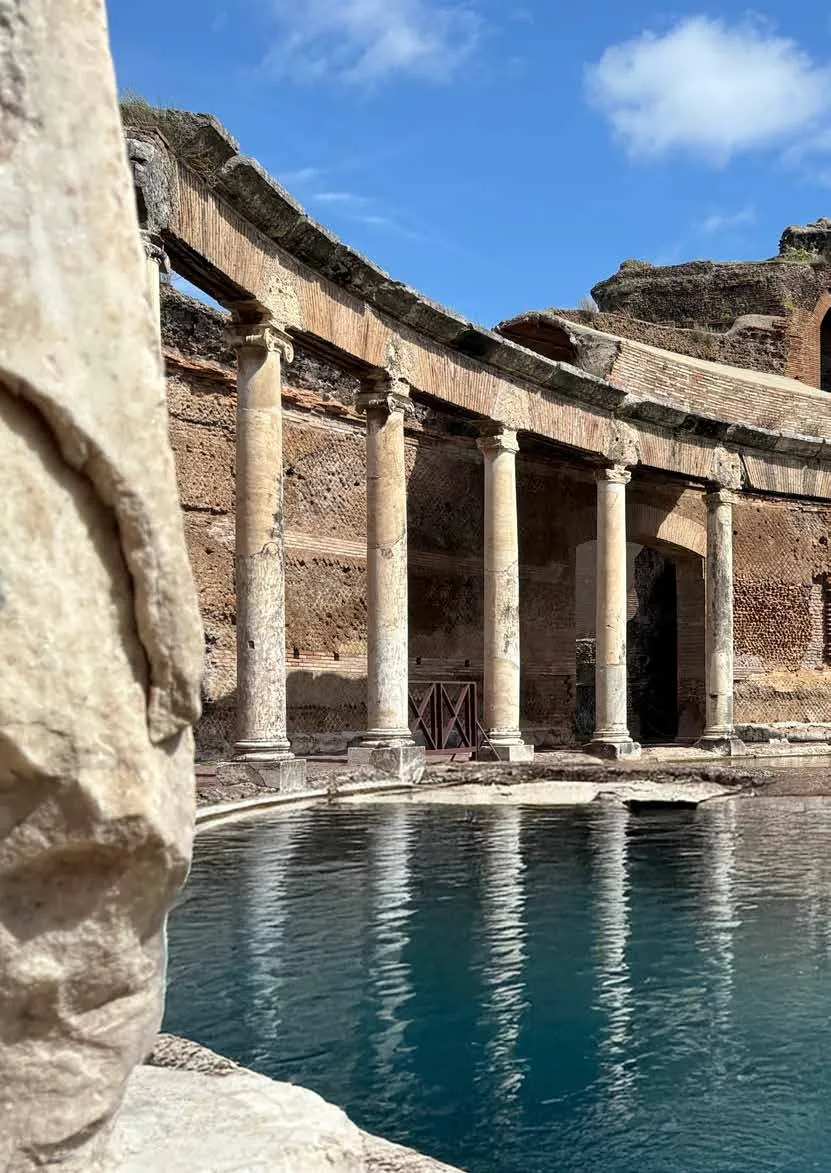
From Bowl to Soul: Lebanese Heritage Through Generations
Food is an integral part of every culture. Leela Zebian, LVI, talks us through the importance of cuisine in her own life.
Leela Zebian
LVI
When asked to describe Lebanese culture, one of the first things that comes to mind is our food.
Lebanese food is a celebration of freedom.
We have the freedom to craft, to adapt, and to express love through our traditional dishes. Every recipe carries generations of history, passed down with pride, embodying the resilience and creativity of our ancestors. Food is not just nourishment; it is a living testament to our heritage, a way to keep our identity alive despite changing times.
My grandmothers both prepare very distinctive, but equally delicious dishes - as one is from the South and the other from the North of the country. They choose to express their love and connection to family and tradition through spending hours carefully preparing delectable dishes for us to all enjoy together. Lebanese people seldom eat alone, instead we share food together with family and friends around a beautiful dining table, as these two elements, family and food, are tied tightly together in our culture. Our food unites everybody. It not only connects family and friends, but it has even tied together people from opposite ends of the conflict after the civil war. They were able to gather around public spaces that focused on food and enjoy a hearty meal together, despite increased segregation between opposing groups due to the system of sectarianism. The communal act of sharing food even became a quiet form of resistance, a statement that no matter what divides us, our shared heritage prevails.
Whether it be a colourful, fancy dish like ‘sayadieh’ (rice and fish), Warak enab’ (stuffed grape leaves) or just a simple plate of bulgur with tomatoes spiced with a few fresh herbs, our food is full of love and has deep, long stories to tell about its origins and the art behind how each dish is made. Each bite carries the whispers of our ancestors, the spirit of our land, and the freedom to keep our culture alive. Let me begin telling the stories of a small handful out of a myriad of traditional dishes.
Beginning with delicacies enjoyed at the end of our meals, some authentic Lebanese desserts include ‘sfouf’—a soft turmeric cake—and meghli. Meghli is a cinnamon-spiced rice pudding that my father’s mother often prepares. It is traditionally topped with a layer of shredded coconut and a choice of nuts, which may include soaked almonds, pistachios, pine nuts, or walnuts. Desserts like these are not merely sweets; they are symbols of celebration, often made for the birth of a child, a ritual that highlights the deep connection between food, life, and family heritage. My grandmother from my mother’s side stands from noon to night, carefully picking out the bones from the freshly caught seabass for some sayadieh for dinner. It is a carefully and beautifully constructed dish: snow-white seabass laid on a bed of golden-yellow turmeric rice and topped with pine nuts and walnuts toasted in olive oil. Lastly, it is served with a side of deep brown, highly nutritious gravy, which is like a bone broth as it is made using the bones of the fish. Due to quite a few cities in Lebanon being on the coast, we have a culture of coastal food, and it is crucial that no part of the freshly caught fish is wasted. This reflects a deep respect for nature, a tradition that has been passed down for generations. To live free in advantaged circumstances is to essentially eat five hours of work in nearly five minutes.
A simpler and quicker dish from the South, but no less important, is connected to the people who escaped oppression and sat in the mountains. It is bulgur with tomatoes and herbs. The bulgur is not cooked but is soaked with a few freshly picked tomatoes and an onion. The cook picks the available herbs in the surrounding area, pounds them with a stone, mixes them into the bulgur and tomatoes, and then you eat. In such a meal lies the essence of resilience—an ability to survive, to adapt, and to find freedom even in the simplest of traditions. To live free in such difficult circumstances was simply to eat some bulgur with tomatoes and herbs.